Women in Jordan at the Forefront: Real Stories of Empowerment and Progress on International Women's Day
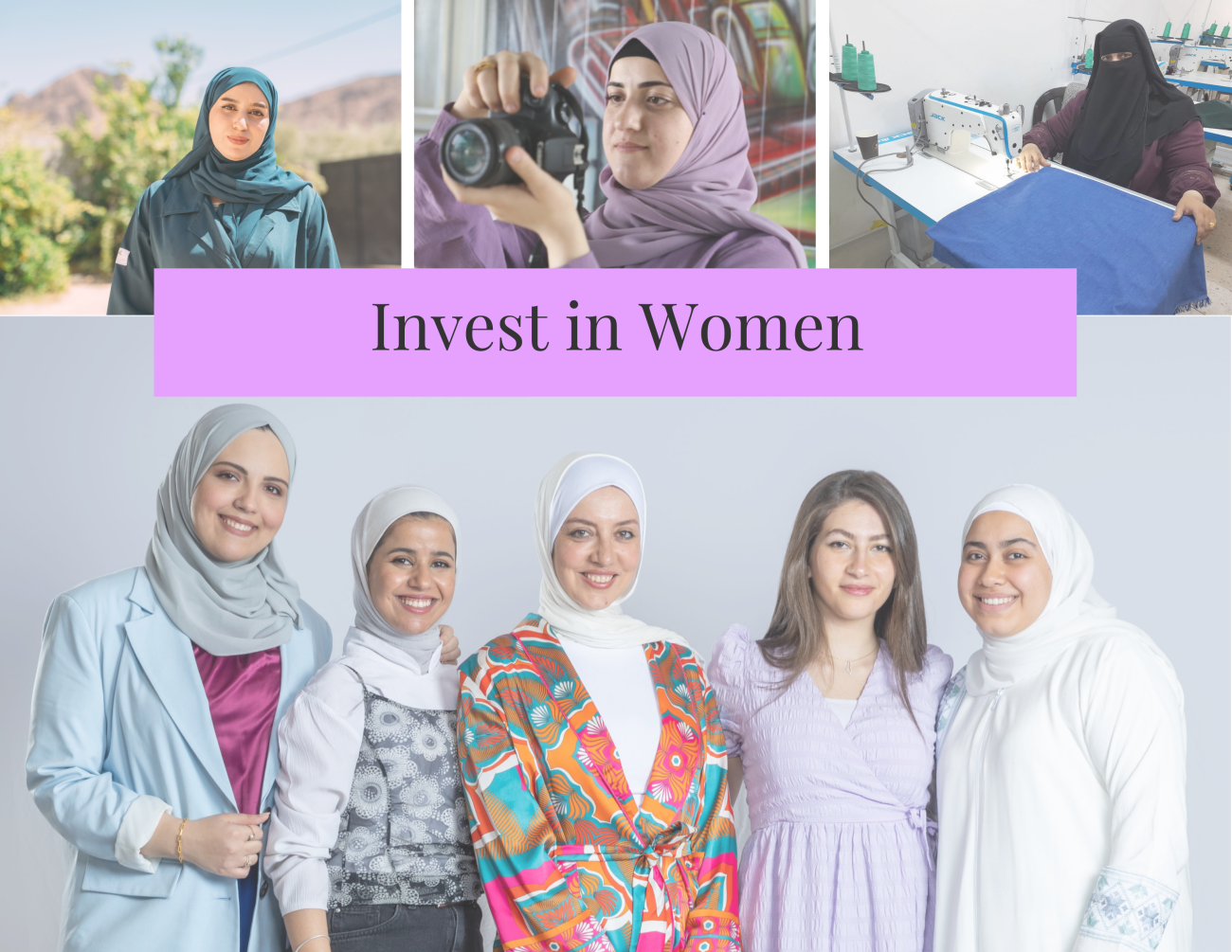
On International Women's Day, we honor women's spirit, turning challenges into innovation and change.
This International Women's Day, we celebrate the indefatigable spirit of women across various fields who have transformed challenges into steppingstones for innovation, leadership, and change.
Regardless of the arena—be it environmental sustainability, skill development, or social advocacy—women in Jordan are leading the charge, showcasing that with resilience, creativity, and dedication, they can not only influence change on an individual and collective level but also inspire those around them. Today, we share the stories of remarkable women whose paths, though fraught with obstacles, illuminate the power of support and self-belief.
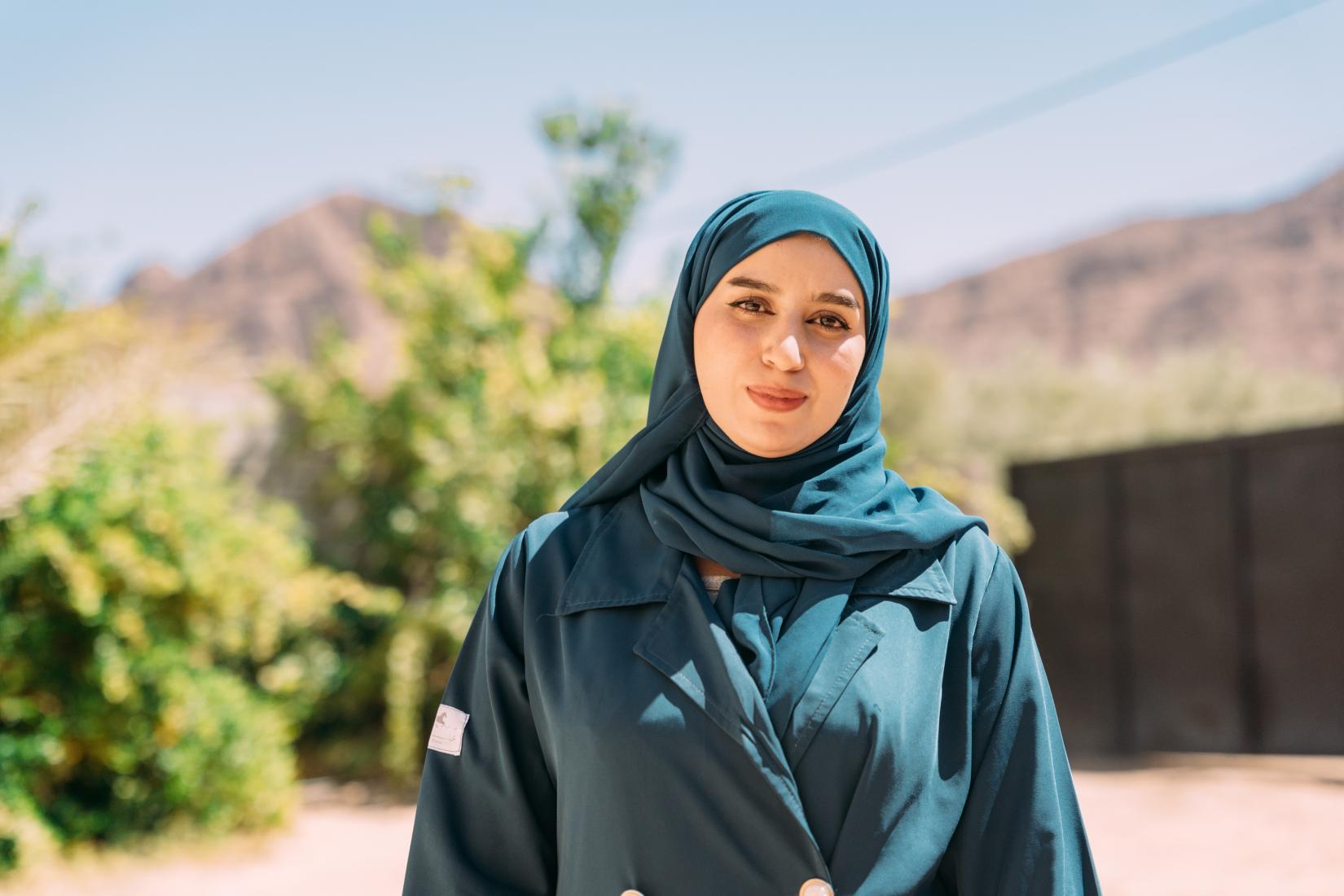
Noor: The entrepreneur bringing financial services to her community in the Wadi Rum desert
In a remote village surrounded by the vast, desert landscape of Wadi Rum, 25-year-old Noor has used her entrepreneurial and leadership skills to start her own microbusiness; bringing much-needed financial services to her community.
Her innovative business idea to bring electronic payments to her village came to life as part of UNICEF and partner Dar Abu Abdullah’s Economic Leadership and Empowerment programme. The programme was designed to bring new opportunities to young people in the south of Jordan, especially young women.
Through her microbusiness, residents of the village can, for the first time, pay for goods and services electronically, without the use of cheques or cash. Noor uses the national E-payment platform to provide the service, charging a small fee. The service has transformed the lives of her neighbours who previously had to drive long distances to the nearest bank.
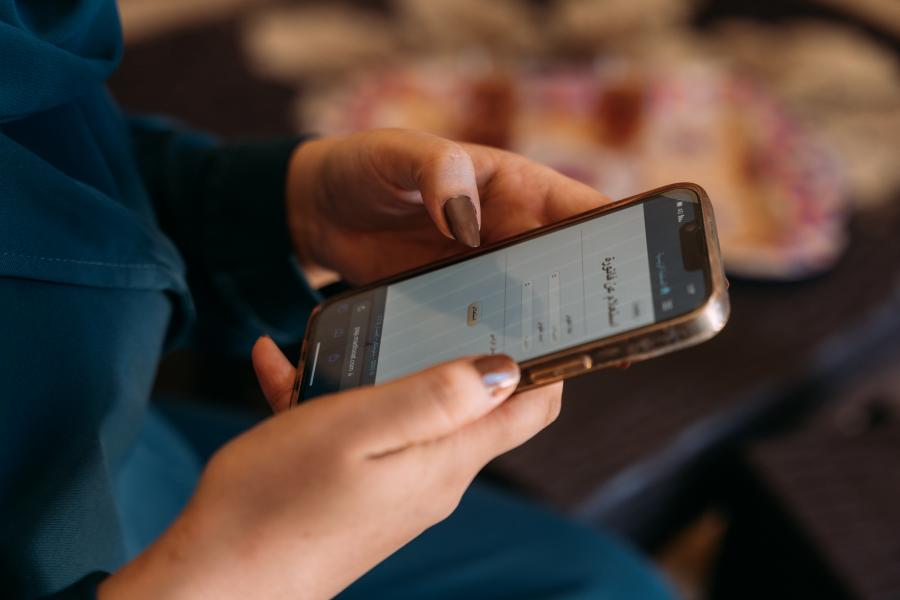
“A woman can be successful and improve her standing in the community through building her skills, being ambitious and finding a job that gives her independence,” explained Noor on the importance of such initiatives for young women living in vulnerable areas.
The programme, part of UNICEF’s Learning to Earning initiative, gives young people training in leadership skills, including problem solving and effective teamwork, as well as project design, work plan development, financial management, monitoring and quality assurance. After training, young people are encouraged to practice their skills through community initiatives and, finally, a feasibility study and a comprehensive work plan is developed for their microbusiness. Young people are then granted seed funding to implement their entrepreneurial ideas.
Noor wants to see more young women, like her, start their own businesses. “Young people around here have ideas, like everywhere, but there tends not to be many opportunities for them,” she said. “We need more initiatives like this to generate our own income and the youth of Jordan need to focus more attention on gaining the right skills to match the needs of our economy.”
Not only has the programme brought Noor financial independence and the ability to support her family but her confidence has grown exponentially. One change she has noticed: “People in my village look at me differently now.” She hopes that she can be a role model for positive change. “Women should not be stopped from being leaders,” concluded Noor. “It is everyone’s responsibility to eliminate the barriers that hinder girls from reaching their full potential. Achieving this is in the interest of everyone.”
Sanaa Mohammad: Crafting a Greener Future
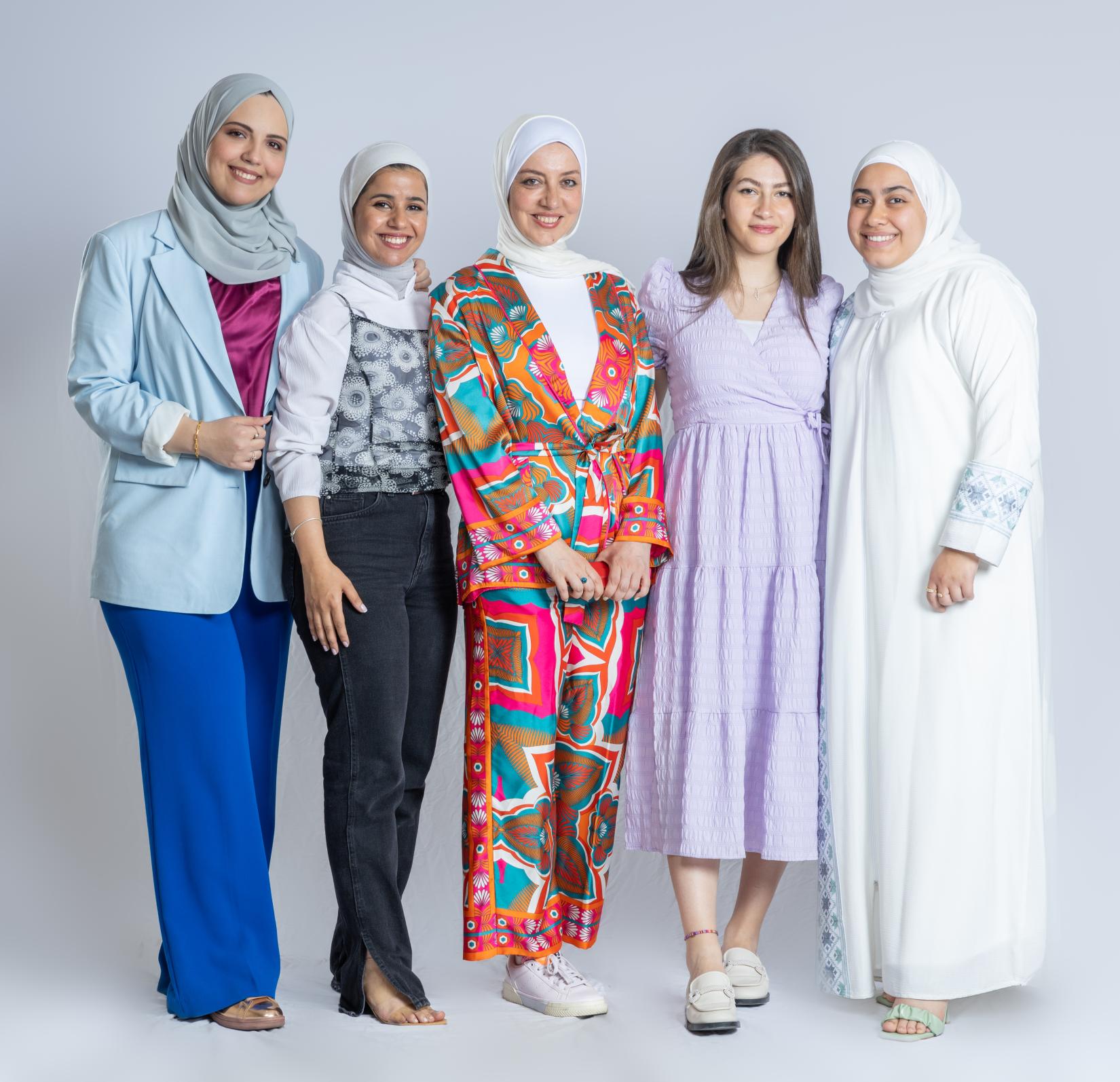
In Jordan, amidst the burgeoning discourse on environmental sustainability and innovation, Sanaa Mohammad's narrative unfolds—a testament to the power of visionary thinking and environmental stewardship in the realm of fashion. Her journey from an aspiring designer to a trailblazer in sustainable fashion is an illustration of how creativity, when aligned with the cause of environmental conservation, can pave the way for significant societal contributions and industry transformation.
Sanaa's venture began with a simple yet profound realization of the excessive textile waste plaguing our planet. Armed with a passion for design and commitment to making a difference, she set her sights on transforming discarded denim and other fabrics into something beautiful and valuable. This was not merely a project but a mission to introduce a sustainable ethos into the fashion industry.
The turning point in her journey came through a symbiotic partnership with a local factory, a collaboration that breathed life into her innovative designs. This endeavor, however, was not just a solitary pursuit but was significantly bolstered by the support through UNIDO’ Khayt Fashion Design Competition, which recognized the potential of her initiatives to contribute to Jordan's fashion industry's growth and sustainability.
Khayt initiative brings together emerging Jordanian designers and manufacturers with the aim of supporting local designers and helping manufacturers create new products for international markets. The initiative has helped improve their skills, encouraged networking, and assisted in creating job opportunities, thus enabling them to support their families.
"In adversity, I found potential," she states. Her approach went beyond merely crafting garments; it was about redefining fashion's future, laying the groundwork for a sustainable paradigm that champions environmental stewardship while fostering economic development.
Today, Sanaa stands as a pioneer, inspiring others to challenge conventions and embrace sustainable practices within the fashion industry. Her work serves as a compelling call to action, urging us to rethink how we view waste and sustainability in fashion. Through her creativity, perseverance, and dedication, Sanaa Mohammad is not just creating fashion; she is spearheading a movement towards a more sustainable and prosperous future, proving that with innovation and commitment, transforming the fabric of the fashion industry is not just possible—it's imperative.
Azhar Riyati: Weaving Success Through Skill and Determination
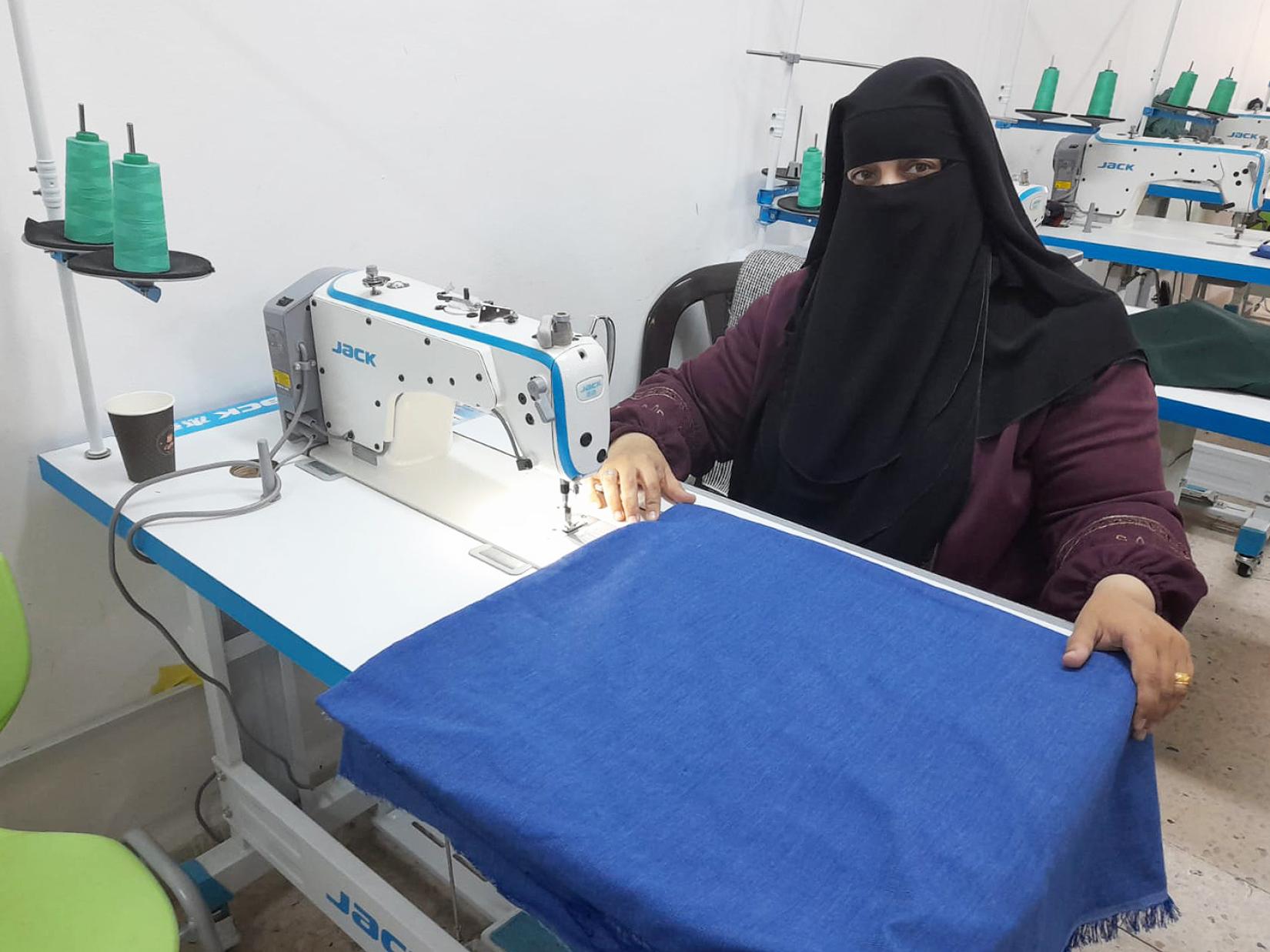
Azhar Riyati's narrative doesn't just start; it blossoms within the nurturing environment of the UN Women’s Oasis Centre. Initially engulfed by apprehensions about her ability to balance work and family responsibilities, Azhar found herself at a crossroads. "I was afraid I wouldn't do a good job," she confessed, highlighting the internal struggle many women face when stepping into new roles, especially after being confined to domestic spaces.
However, the Oasis Centre, more than just a training facility, emerged as a beacon of hope and transformation for Azhar. Here, amidst threads and fabrics, Azhar wove her new identity, transitioning from a homemaker to a harbinger of change. The tailoring skills she honed did more than just enable her to support her family; they unveiled her innate leadership and teaching abilities, marking her evolution into a trainer within the very program that redefined her life.
The oasis model have significantly expanded their influence, now boasting 22 centers that have meaningfully empowered more than 30,000 people, including Jordanian and Syrian refugee women, including a significant number who have disabilities. These centres are acclaimed for fostering safe and inclusive environments, offering vital cash-for-work
"I recommended the programme for many women I know, so they can benefit as much as I did," Azhar shares, encapsulating the ripple effect of empowerment. Her journey from uncertainty to economic independence and confidence is a testimony to the transformative power of skill development and community support found at the Oasis Centres.
Today, Azhar stands as one of the influencing figures in her community, empowering other women through the art of tailoring. Her story is a vivid illustration of how investment in women's skills and confidence can unlock doors to leadership and economic empowerment, echoing the global call to 'Accelerate Progress'.
Nour Mohammad: A Lens of Resilience - Transforming Adversity into Advocacy
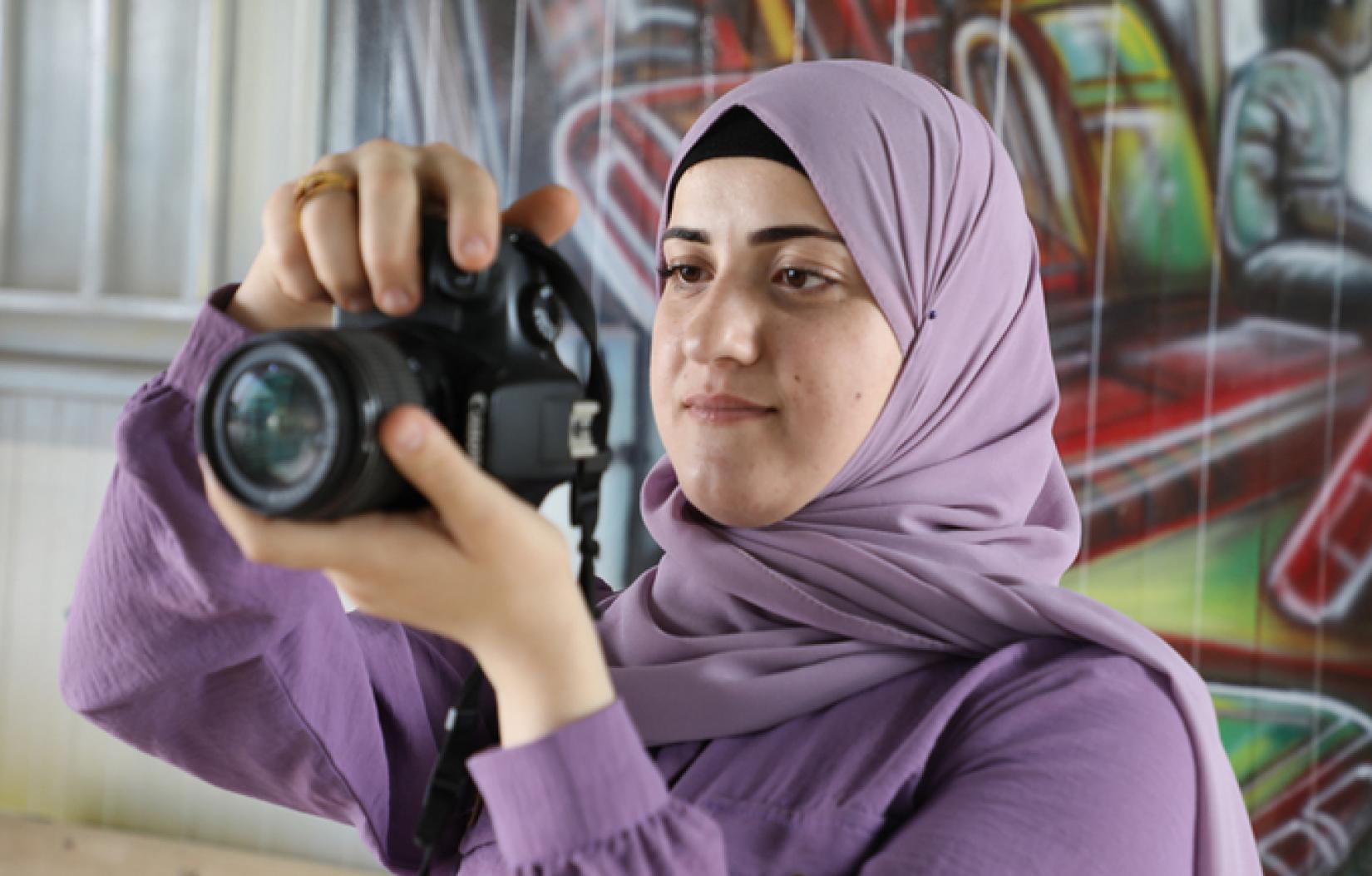
Nour's journey, etched with resilience and transformation, weaves through the tapestry of her life's most challenging and triumphant moments. Her story begins with a young girl leaving Syria, cradling dreams amidst the ruins of her home, seeking solace and safety in Jordan's Zaatari camp. The mixed emotions of reunion and loss marked her arrival, but it was her pursuit of education that shone brightly against the backdrop of displacement. Her determination was her compass, guiding her through the mire of early marriage—a decision wrapped in the innocence of youthful dreams yet unfolding into a stark reality far removed from her aspirations.
Marriage thrust Nour into a realm of responsibilities and expectations, a stark departure from the life she envisioned. Trapped within the confines of a new household, her spirit yearned for freedom, an escape from the oppressive weight of obedience and servitude. The subsequent years unfurled challenges and isolation, with her husband's decisions only deepening her despair. Yet, it was in her deepest troughs of sorrow that Nour's resilience flickered, refusing to be extinguished.
Choosing freedom over confinement, Nour embarked on a solitary path, leaving behind a life that sought to diminish her light. Her journey led her to the Quest Scope youth center, supported by the United Nations Population Fund, where she discovered a community that embraced her. Here, Nour found her voice and purpose through training sessions that broadened her horizons and ignited her passion for photography. The camera became her tool of empowerment, a lens through which she could capture the essence of her experiences and the plights of those around her. It was a medium for advocacy, a way to spotlight the challenges women face, particularly the perils of early marriage.
Photography transcended being merely a profession for Nour; it became her "alternative angle," a means to view and portray the world with newfound clarity and empathy. At 24, Nour's journey from a refugee child to an advocate for women's rights is a testament to her indomitable spirit. Her advocacy extends beyond her camera, as she passionately counsels against early marriage, urging girls and parents alike to envision a future defined by dreams and aspirations, not societal chains.
*This story is a compilation of narratives contributed by UNICEF, UNIDO, UN Women, UNFPA.


